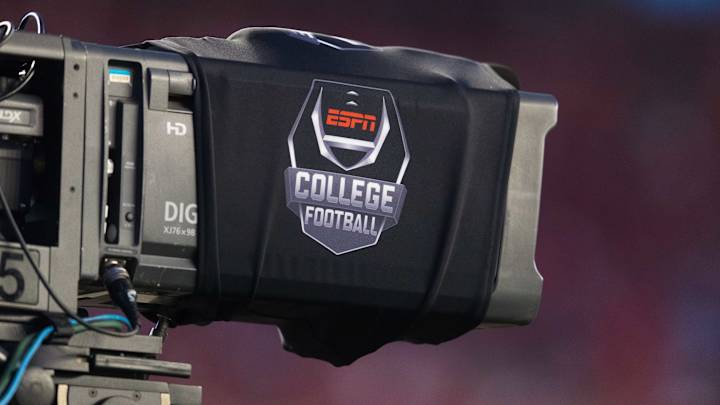23 Days To Kansas Football: ESPN Out on Big Ten Media Rights

Nearly two years ago, the SEC and ESPN announced that the network had secured the exclusive rights to all of the conference's football and basketball games for 10 years starting in the 2024-25 season. It was touted as a huge investment by the self-named "Worldwide Leader in Sports" and was an early sign that the college football landscape was about to change drastically.
The first domino fell when Oklahoma and Texas announced (after the news leaked) that they were going to leave the Big 12 for the SEC. The Big 12 scrambled, added four new teams and managed to survive, and people started talking about when, not if, further conference realignment was going to happen.
There was literally no warning that the next wave of realignment was going to happen this summer, and the announcement by UCLA and USC that they were leaving the Pac 12 to head to the Big Ten was only leaked an hour or two before it was official. What nobody realized was that the pending negotiations for the Big Ten media deal were being used to push that ambitious plan to shake the very core of the sport.
ESPN Out of new deal
It was reported by the Sports Business Journal that ESPN, who currently broadcast a selection of Big Ten games, turned down an opportunity to be a part of the upcoming deal. Reports indicate that the final offer was a seven-year, $380 million agreement that wouldn't include as many of the marquee games that they have the rights to broadcast now. Additionally, they would have no rights to the inventory that they would be seeking to help fill the ESPN+ service.
Stepping in to pick up what ESPN turned down is a combination of two networks. CBS, which currently holds rights to the afternoon SEC slot, and NBC, whose only college football offering currently is Notre Dame home games, are supposedly paying $350 million each for a limited Big Ten package.
For weeks, everyone has been saying that no further movement on conference realignment and the Pac 12 media deal could happen until the Big Ten deal is finalized. So how does the recent news affect the landscape, especially for the Big 12?
New opportunities
The first thing this news does is highlight how much the battle lines have been drawn in the media landscape. The SEC is now exclusively an ESPN broadcast property, and FOX has managed to shut ESPN out of the biggest competitor, financially and in top-level competition.
But there are still plenty of opportunities across the board. The ACC is locked into a bad deal with ESPN, but the Big 12 and Pac 12 are both looking for new deals. ESPN needs at least one more big conference deal to fill out there schedule and amass enough content for ESPN+. The real question is whether they prefer that to be with a single, bigger conference, or if they want to keep the Pac 12 and Big 12 both alive and well.
Additionally, while FOX is out on the Pac 12, they are still in play for at least some piece of the Big 12. Additionally, there were reports last week that NBC might be interested in using a Big 12 deal to help justify a large number for Notre Dame's rights and to secure more inventory for their Peacock streaming service.
And finally, there are rumors flying around that CBS might be looking to get at least some piece of the Big 12 rights, both to fill out their basketball inventory and potentially broadcast more than one football game on Saturdays.
All this is to say that there are now plenty of options in play for the Big 12, and as the conference looks to negotiate their next deal, they have a lot of options to explore and help drive up the price.
Some reasons to worry
But it's not all good news for the conference. The numbers that we are talking about for the Big Ten deal are massive, meaning that there is a lot of broadcast money tied up in the SEC and Big Ten. Generally this is taken as a sign that the amount of money available has increased exponentially, and that these numbers can help set expectations for large increases in rights fees across the sport. I'm not sure I agree.
Early estimates have indicated that the Big 12 should expect an increase, but there is still an open question of how much more the networks can afford to pay.
The money in sports broadcasting is not infinite. While it is true that live sports is one of the last big money makers for television networks, there is bound to be a point where there just isn't any more money. I don't know when that is going to be. But there should be some worry that the networks are going to be hitting that spending limit somewhere. When we finally hit it, some conference is going to be surprised when the money train jumps the tracks and comes to a crashing halt.
Hopefully that train doesn't have the Big 12 on board.
Join the discussion! Come talk about this or any of our articles on the Blue Wing Rising Discord Server.
Follow Blue Wings Rising on Twitter.
Listen to the official podcast of Blue Wings Rising: The Rock Chalk Podcast.
